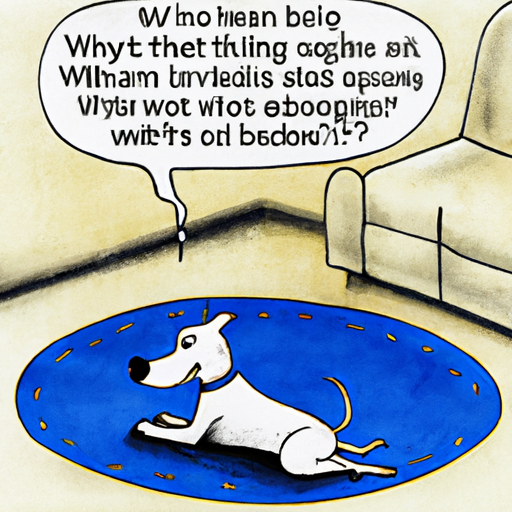If you’re a dog owner, you’ve likely witnessed your furry friend scooting their bottom across the floor. It’s not exactly the most glamorous aspect of pet ownership, but it’s a reality all the same. Understanding why your dog behaves this way can help you better care for them and ensure their health and happiness.
H2: Understanding the Behavior
When your dog scoots their bottom across your living room carpet, they’re not trying to embarrass you in front of guests. They’re actually trying to alleviate discomfort or itchiness. You may notice this behavior after they’ve gone to the bathroom, or seemingly out of the blue.
This could be due to a number of reasons:
- Anal Gland Issues: Dogs have two small glands located near their anus, which can sometimes become clogged or infected.
- Parasites: Fleas, ticks, and worms can cause significant discomfort for your pet.
- Allergies: Just like humans, dogs can suffer from allergies that cause itchy skin.
- Dietary issues: Certain foods can lead to digestive issues which in turn cause discomfort in the rectal area.
H2: Identifying the Cause
To properly treat your dog’s discomfort, it’s important to identify the root cause. This is where your role as a caregiver is crucial. Take note of their behavior and look for any signs that might point to the reason behind it.
| Possible Causes | Signs of the Cause |
|---|---|
| Anal Gland Issues | Strong odor, swelling near the anus, difficulty sitting |
| Parasites | Visible bugs or worms, excessive scratching |
| Allergies | Frequent sneezing, itchy eyes, skin rashes |
| Dietary issues | Changes in stool, gas, loss of appetite |
H2: Treating the Problem
Once you’ve identified the cause, it’s time to treat the problem. This could involve a visit to the vet, changes in diet, or the use of medications.
- For anal gland issues, a vet may need to manually express the glands.
- Parasite problems typically require medication and thorough cleaning of your dog’s living area.
- Allergies may be managed with dietary changes, antihistamines, or steroid treatments.
- Dietary issues can often be resolved with a change in food or the addition of dietary supplements.
H2: Preventing Future Issues
To keep your dog from scooting in the future, focus on prevention. Regular vet check-ups can catch anal gland or parasite issues before they become serious. A balanced diet can prevent allergies and digestive issues. Regular grooming, including baths and flea treatments, can also keep your dog comfortable and itch-free.
H2: Frequently Asked Questions
Here are some common questions you may have about this peculiar behavior:
Q: Is scooting harmful to my dog?
A: While it can be a sign of an underlying issue, the act of scooting itself is not harmful.
Q: How can I stop my dog from scooting?
A: Addressing the root cause of the scooting is the best way to stop it.
Q: Should I take my dog to the vet for scooting?
A: If your dog is frequently scooting, or if they seem to be in pain, a vet visit is a good idea.
Remember, as a caregiver, your job is to ensure that your dog lives a healthy and comfortable life. Understanding why they scoot their bottoms is a part of that responsibility.



